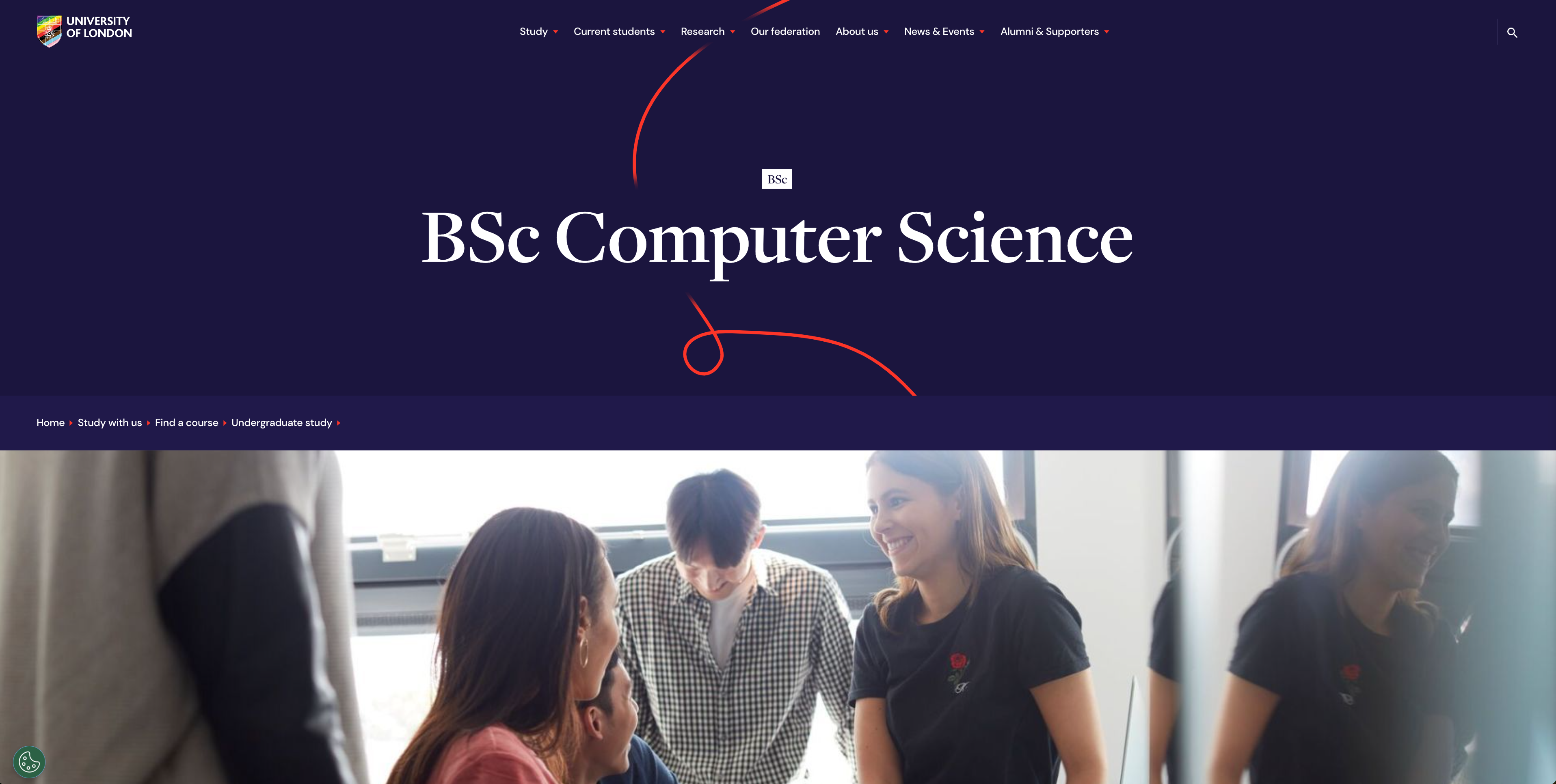Discover the UoL Computer Science Degree on Coursera
Quick Take
Looking to master programming? This program might not be your top choice. However, if you're after an internationally recognized degree and are comfortable with English, it’s a great opportunity.
The UoL Degree Program

The University of London (UoL) offers a Bachelor of Science in Computer Science through Coursera, providing flexibility for online learners worldwide. This post explores the program’s structure, benefits, and potential challenges based on my experience.
Program Overview
In the UK, degrees typically focus on major subjects without general education requirements, making them three-year programs. The UoL program follows this model but allows up to six years to complete, accommodating various schedules. As a full-time frontend engineer, I opted for the six-year plan, finding it perfect for balancing work and study. Unlike other distance learning programs requiring on-site exams, UoL’s program is entirely online, which suits my busy schedule.
The degree is delivered by faculty from UoL and UoL Goldsmiths and awarded by both institutions. This global accreditation from a respected English-speaking country was a key factor in my decision to enroll.
Admission Criteria
- Age: At least 17 years old.
- Mathematical Skills: GCSE Mathematics (Grade A\*-B / 9-5) or AS Level Mathematics (A-E), or equivalent.
- English Proficiency: Specific requirements must be met.
If you don't meet these criteria, you can still apply via the Performance-Based Admission (PBA) route by passing Introduction to Programming I and Computational or Discrete Mathematics with at least 40%. This was my path due to my previous major in communication, which lacked sufficient mathematics courses.
Check the specific requirements for your country on their website.
Tuition Fees

Tuition varies by nationality. For detailed information, refer to the fees schedule. For Korean students, each 15-credit module for web-supported learning costs £772, totaling £3088 for four modules per term.
Curriculum
Graduation requires completing 24 modules:
- Level 4 (Year 1+): 8 modules
- Level 5 (Year 2+): 8 modules
- Level 6 (Year 3+): 6 modules
- Final Project: 2 modules
Students can transfer to an on-campus program in their final year and attend the graduation ceremony in person.
Pros and Cons
Pros:
- 100% Online: All lectures and exams are online, with some countries now offering fully online exams through Inspera.
- Active Community: Many students are IT professionals, facilitating robust networking and information sharing. The student Slack channel and open-source community are very active.
- Work and Study Balance: Flexible scheduling makes it feasible to balance work and study.
- Creative Courses: Online courses feature creative assignments like game-based tasks and virtual coin trading programs.
- Coursera Platform: Easy follow-up on lectures and assignments, with Coursera certificates counting towards course credit.
- Various Events: Numerous internship opportunities and webinars are available.
Cons:
- Grade Feedback: There can be significant delays in receiving grades, with feedback often minimal or vague.
- Communication with the School: Response times can vary, though I personally haven't experienced delays longer than five days.
For a comprehensive look, visit the Coursera UoL program page.
Additional Insights
Based on reader comments, here are some important additional points about the University of London Computer Science degree program:
Admission Process
- International students may be directed to the Performance-Based Admission (PBA) route due to differences in educational systems, even if they meet stated requirements.
- Older applicants or those who have been away from studying for several years are typically offered only the PBA route.
Program Structure and Approach
- The program is very hands-on focused, with a strong emphasis on practical learning.
- Mid-module coursework is a key component, pushing students to engage deeply with the content.
- Coursework can be time-intensive, taking days or weeks depending on the module's difficulty level.
Curriculum Balance
- There are solid foundational mathematics and theory modules early in the program, consistent with typical Computer Science degrees.
- Students are encouraged to thoroughly engage with recommended books (e.g., Sipser, Rosen) for a strong theoretical foundation.
- Advanced topics later in the degree (e.g., data science, machine learning, AI, 3D graphics) focus more on practical application than theoretical depth.
- Some students note a lack of advanced theoretical modules in topics like linear algebra for machine learning and graphics.
Creative Aspects
- The program incorporates creative computing elements throughout.
- Early assignments may include creative coding tasks, such as using P5.js to create art inspired by famous painters.
- Real-world examples often draw from the arts, appealing to students working at the intersection of technology and creativity.
Student Experience
- The program's effectiveness largely depends on individual effort and engagement.
- The hands-on approach ensures learning through practical application, even for less engaged students.
These insights provide a more nuanced view of the program, highlighting its practical focus, creative elements, and potential areas for improvement in advanced theoretical content.
Acknowledgments
Special thanks to our contributors for their valuable insights:
- Francisco Daniel Diaz Gonzalez - LinkedIn Profile
- Lauren McClure - LinkedIn Profile
Their comments have greatly enriched this article and provided a more comprehensive view of the UoL Computer Science program.